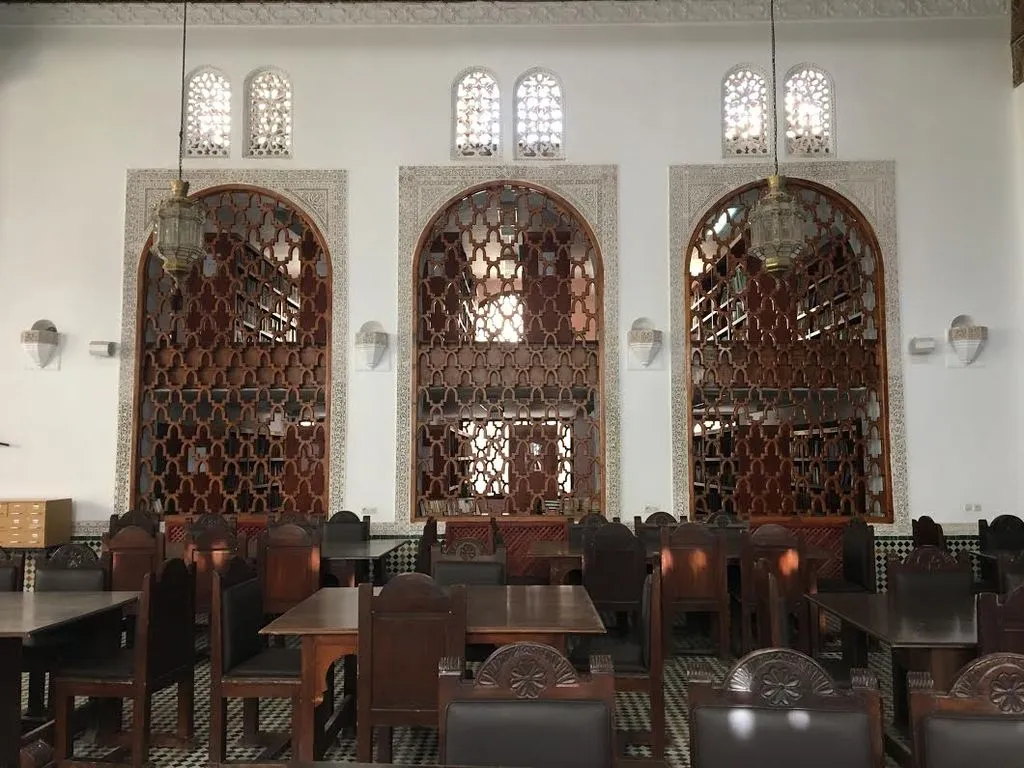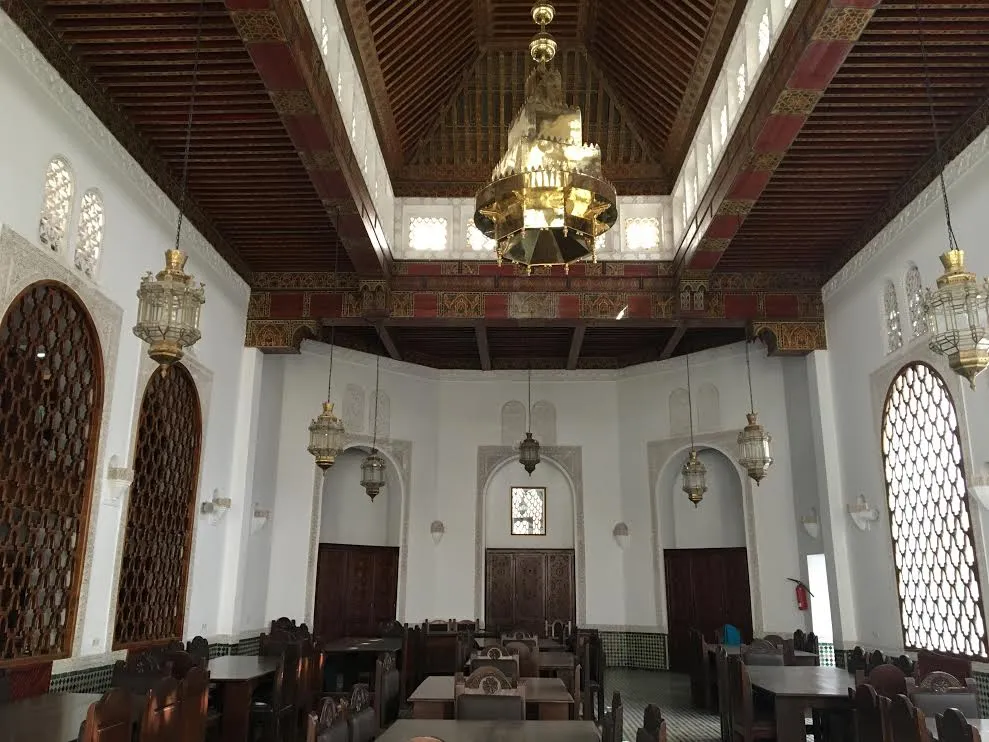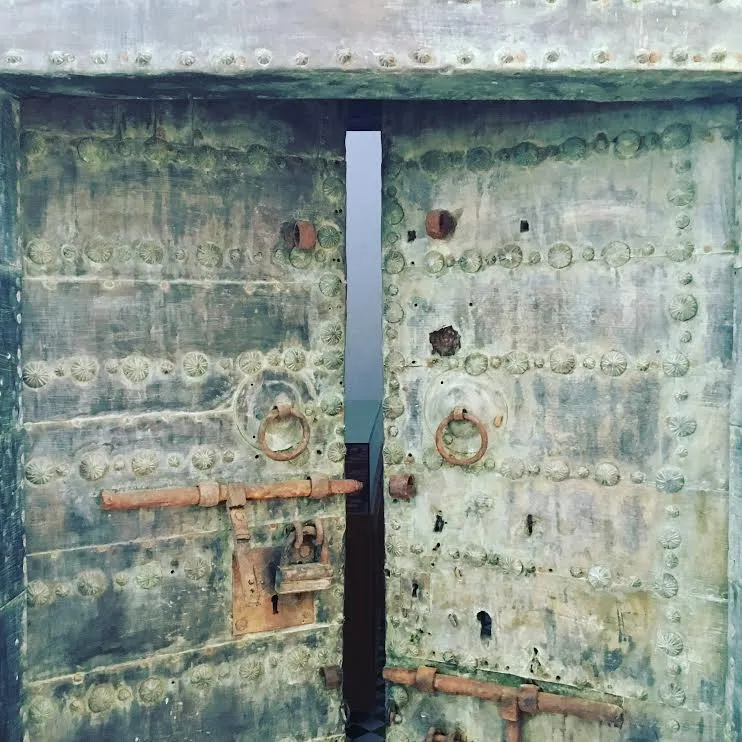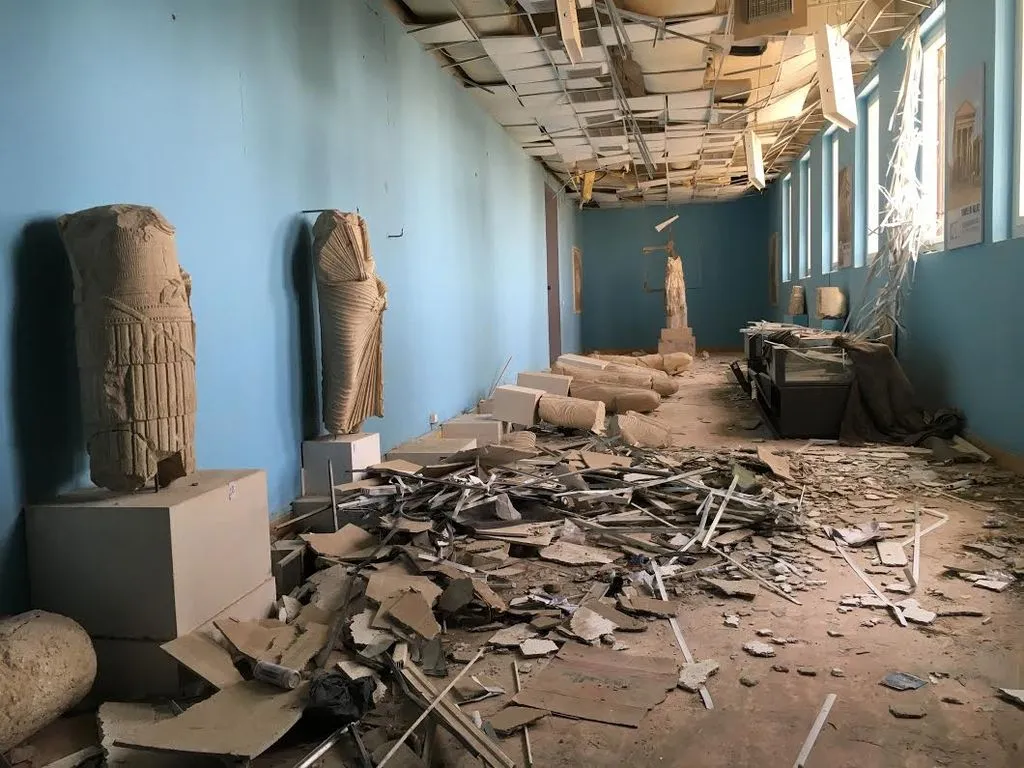
A Sneak Peek Into the Oldest Library in the World
While we at the Riot take some time off to rest and catch up on our reading, we’re re-running some of our favorite posts from the last several months. Enjoy our highlight reel, and we’ll be back with new stuff on Tuesday, January 3rd.
This post originally ran July 18, 2016.
Meet the oldest library in the world, Khizanat al Qarawiyyin in Fes, Morocco. It was founded in the 9th century by a woman, Fatima al Fihria, and is being restored by another woman, Aziza Chaouni, a native of Fes, 12 centuries later. To step into it is to be in the presence of overwhelming history, the scent of old books permeating the air, the weight of so much ancient knowledge forcing you to stand in awe.
And it’s just plain gorgeous.
“It has this magical aura,” says Chaouni, the architect in charge of the restoration and who also restored the city’s old river that had fallen into disuse (here’s her TED talk discussing the project). “I just keep on discovering things, I still get lost, and it still has a lot of treasures to be discovered.”
Here is a sneak peek inside the ancient library, which you can’t visit yet, but which should be open to the public in a month or so, once the restoration work commissioned by the king is completed.
It was founded in the 9th century by a woman, Fatima al Fihria, and is being restored by another woman, Aziza Chaouni, a native of Fes, 12 centuries later. To step into it is to be in the presence of overwhelming history, the scent of old books permeating the air, the weight of so much ancient knowledge forcing you to stand in awe.
And it’s just plain gorgeous.
“It has this magical aura,” says Chaouni, the architect in charge of the restoration and who also restored the city’s old river that had fallen into disuse (here’s her TED talk discussing the project). “I just keep on discovering things, I still get lost, and it still has a lot of treasures to be discovered.”
Here is a sneak peek inside the ancient library, which you can’t visit yet, but which should be open to the public in a month or so, once the restoration work commissioned by the king is completed.
 This is the reading room, where Chaouni’s great-grandfather once studied after traveling from his village. A glorious chandelier hangs from the exquisitely carved ceiling, its patterns testimony to centuries of North African architecture.
This is the reading room, where Chaouni’s great-grandfather once studied after traveling from his village. A glorious chandelier hangs from the exquisitely carved ceiling, its patterns testimony to centuries of North African architecture.
 Behind this door were once kept the most prized manuscripts in the library and the adjacent Qarawiyyin mosque. It had four locks, each key with a different keeper. The collection includes a Qur’an inscribed in Kufic script from the 9th century, and a signed copy of the Muqaddima of ibn Khaldun, the definitive historical text by the 14th century scholar.
Behind this door were once kept the most prized manuscripts in the library and the adjacent Qarawiyyin mosque. It had four locks, each key with a different keeper. The collection includes a Qur’an inscribed in Kufic script from the 9th century, and a signed copy of the Muqaddima of ibn Khaldun, the definitive historical text by the 14th century scholar.
 And this is some of the equipment used to treat the older manuscripts.
The Arab world’s ancient heritage is at risk. The Mongols laid waste in the 13th century to Baghdad, the center of Islamic learning and home to the House of Wisdom, the symbol of the golden age of Muslim intellectual and scientific achievement when Europe was mired in dark ages.
Today a different horde threatens this heritage. The terrorists of Islamic State have laid waste to the Mosul library, burning ancient manuscripts after their conquest of Iraq’s second-largest city. They destroyed artefacts and sculptures and even bulldozed entire temples and ruins in Iraq and Syria.
This is the museum of ancient Palmyra in Syria, once an oasis town with some of the best-preserved ruins of antiquity.
And this is some of the equipment used to treat the older manuscripts.
The Arab world’s ancient heritage is at risk. The Mongols laid waste in the 13th century to Baghdad, the center of Islamic learning and home to the House of Wisdom, the symbol of the golden age of Muslim intellectual and scientific achievement when Europe was mired in dark ages.
Today a different horde threatens this heritage. The terrorists of Islamic State have laid waste to the Mosul library, burning ancient manuscripts after their conquest of Iraq’s second-largest city. They destroyed artefacts and sculptures and even bulldozed entire temples and ruins in Iraq and Syria.
This is the museum of ancient Palmyra in Syria, once an oasis town with some of the best-preserved ruins of antiquity.
 This library’s restoration therefore symbolizes much more than preserving old texts. It is a ray of light in a troubled region that is busy self-immolating, its nation states destroyed.
The first word revealed in the Qur’an, Islam’s holy scripture, to the Prophet Muhammad is “iqra’a,” a word that means both “read” and “recite.” How better to revive Islam’s intellectual heritage than to restore this library?
This library’s restoration therefore symbolizes much more than preserving old texts. It is a ray of light in a troubled region that is busy self-immolating, its nation states destroyed.
The first word revealed in the Qur’an, Islam’s holy scripture, to the Prophet Muhammad is “iqra’a,” a word that means both “read” and “recite.” How better to revive Islam’s intellectual heritage than to restore this library?
Meet the oldest library in the world, Khizanat al Qarawiyyin in Fes, Morocco.
 It was founded in the 9th century by a woman, Fatima al Fihria, and is being restored by another woman, Aziza Chaouni, a native of Fes, 12 centuries later. To step into it is to be in the presence of overwhelming history, the scent of old books permeating the air, the weight of so much ancient knowledge forcing you to stand in awe.
And it’s just plain gorgeous.
“It has this magical aura,” says Chaouni, the architect in charge of the restoration and who also restored the city’s old river that had fallen into disuse (here’s her TED talk discussing the project). “I just keep on discovering things, I still get lost, and it still has a lot of treasures to be discovered.”
Here is a sneak peek inside the ancient library, which you can’t visit yet, but which should be open to the public in a month or so, once the restoration work commissioned by the king is completed.
It was founded in the 9th century by a woman, Fatima al Fihria, and is being restored by another woman, Aziza Chaouni, a native of Fes, 12 centuries later. To step into it is to be in the presence of overwhelming history, the scent of old books permeating the air, the weight of so much ancient knowledge forcing you to stand in awe.
And it’s just plain gorgeous.
“It has this magical aura,” says Chaouni, the architect in charge of the restoration and who also restored the city’s old river that had fallen into disuse (here’s her TED talk discussing the project). “I just keep on discovering things, I still get lost, and it still has a lot of treasures to be discovered.”
Here is a sneak peek inside the ancient library, which you can’t visit yet, but which should be open to the public in a month or so, once the restoration work commissioned by the king is completed.
 This is the reading room, where Chaouni’s great-grandfather once studied after traveling from his village. A glorious chandelier hangs from the exquisitely carved ceiling, its patterns testimony to centuries of North African architecture.
This is the reading room, where Chaouni’s great-grandfather once studied after traveling from his village. A glorious chandelier hangs from the exquisitely carved ceiling, its patterns testimony to centuries of North African architecture.
 Behind this door were once kept the most prized manuscripts in the library and the adjacent Qarawiyyin mosque. It had four locks, each key with a different keeper. The collection includes a Qur’an inscribed in Kufic script from the 9th century, and a signed copy of the Muqaddima of ibn Khaldun, the definitive historical text by the 14th century scholar.
Behind this door were once kept the most prized manuscripts in the library and the adjacent Qarawiyyin mosque. It had four locks, each key with a different keeper. The collection includes a Qur’an inscribed in Kufic script from the 9th century, and a signed copy of the Muqaddima of ibn Khaldun, the definitive historical text by the 14th century scholar.
 And this is some of the equipment used to treat the older manuscripts.
The Arab world’s ancient heritage is at risk. The Mongols laid waste in the 13th century to Baghdad, the center of Islamic learning and home to the House of Wisdom, the symbol of the golden age of Muslim intellectual and scientific achievement when Europe was mired in dark ages.
Today a different horde threatens this heritage. The terrorists of Islamic State have laid waste to the Mosul library, burning ancient manuscripts after their conquest of Iraq’s second-largest city. They destroyed artefacts and sculptures and even bulldozed entire temples and ruins in Iraq and Syria.
This is the museum of ancient Palmyra in Syria, once an oasis town with some of the best-preserved ruins of antiquity.
And this is some of the equipment used to treat the older manuscripts.
The Arab world’s ancient heritage is at risk. The Mongols laid waste in the 13th century to Baghdad, the center of Islamic learning and home to the House of Wisdom, the symbol of the golden age of Muslim intellectual and scientific achievement when Europe was mired in dark ages.
Today a different horde threatens this heritage. The terrorists of Islamic State have laid waste to the Mosul library, burning ancient manuscripts after their conquest of Iraq’s second-largest city. They destroyed artefacts and sculptures and even bulldozed entire temples and ruins in Iraq and Syria.
This is the museum of ancient Palmyra in Syria, once an oasis town with some of the best-preserved ruins of antiquity.
 This library’s restoration therefore symbolizes much more than preserving old texts. It is a ray of light in a troubled region that is busy self-immolating, its nation states destroyed.
The first word revealed in the Qur’an, Islam’s holy scripture, to the Prophet Muhammad is “iqra’a,” a word that means both “read” and “recite.” How better to revive Islam’s intellectual heritage than to restore this library?
This library’s restoration therefore symbolizes much more than preserving old texts. It is a ray of light in a troubled region that is busy self-immolating, its nation states destroyed.
The first word revealed in the Qur’an, Islam’s holy scripture, to the Prophet Muhammad is “iqra’a,” a word that means both “read” and “recite.” How better to revive Islam’s intellectual heritage than to restore this library?








